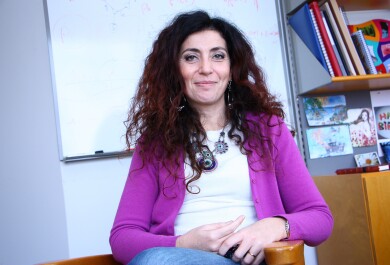Researchers of Quantum Technology Expect a Revolution Just Around the Corner
Researchers of quantum technology at the University of Turku are collaborating internationally to promote the development of quantum computers and to create new applications based on quantum technology. These applications are expected to revolutionise our lives.
The birth of quantum mechanics at the beginning of the 18th century led to the first quantum revolution, and enabled inventions such as transistors and computers. According to Professor of Theoretical Physics Sabrina Maniscalco, in the near future, the second revolution will have an impact of similar scale on our society.
Many aspects of our lives rely on the speed of computation and communication processing. The emergence of quantum computers will revolutionise this speed. In practise, this would mean that there is no longer waiting included in information to transfer in any situation.
The importance of the speed of computation is accentuated especially in information security: lagging behind in speed of computation would pose a serious security threat, as it plays a key role in e.g. cyberattacks and preparing against them.
Industrial exploitation as the objective
This threat and the overall importance of developing quantum technologies has been recently also acknowledged in Europe. Quantum Flagship is one of the flagships initiatives funded by the European Commission.
– The funding enables us to build the ecosystem required for the industrial exploitation of the research findings and prototypes, and helps us catch up with for example China and the United States, Maniscalco says.
Maniscalco is the Head of Turku Quantum Technology research group, the research of which ranges from foundations of quantum theory to new applications based on quantum technology. She emphasises that many challenges still need solving before the quantum applications can create revenues.
– One of the most important challenges we are trying to tackle is reducing the so-called noise; disturbance in quantum computers’ hardware causes loss of information. Another important research topic concerns quantum algorithms which function as the “software” of quantum computers and allow them to reach their full potential and speed of computation, the researcher explains.
Complex phenomena described with math
Quantum computers operate in a very different way from traditional computers. The features of quantum physics allowing their operations are complex and often go against people’s common sense.
– Quantum superposition is a good example of this complexity: a particle in superposition is, in a way, in two different locations at the same time. However, this is only an analogy – the phenomena of quantum physics are very difficult to express in words. The only adequate language for quantum physics is math, Maniscalco explains.
Text: Lotta Junnila
Photo: Hanna Oksanen

